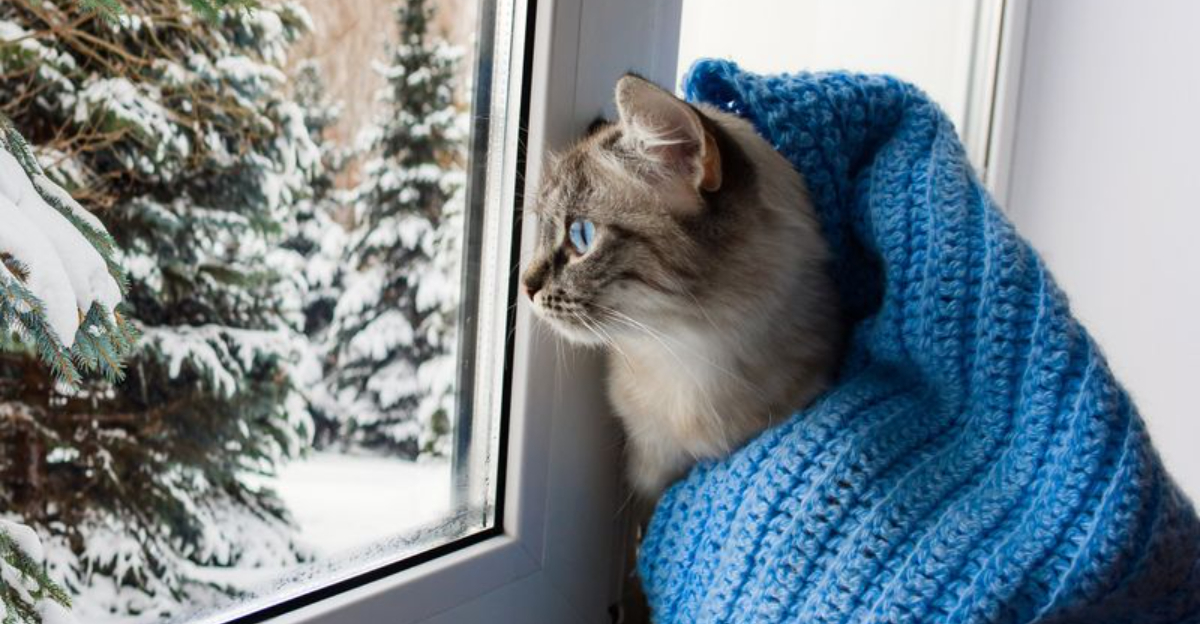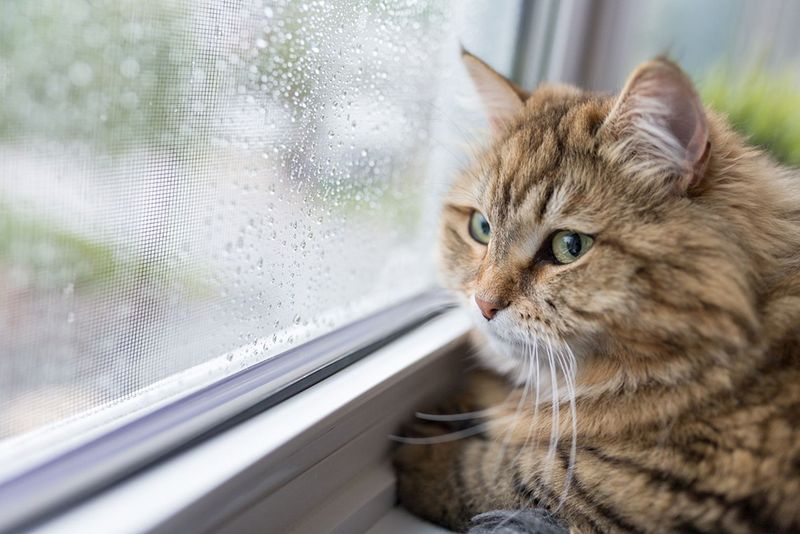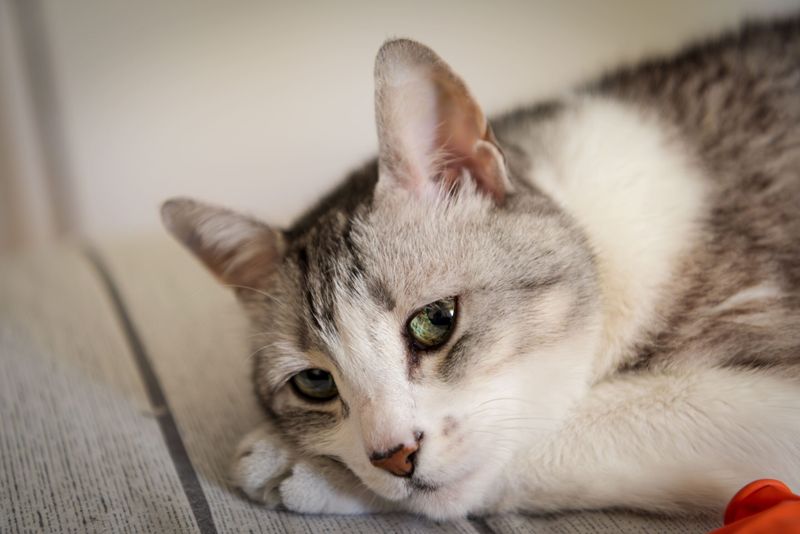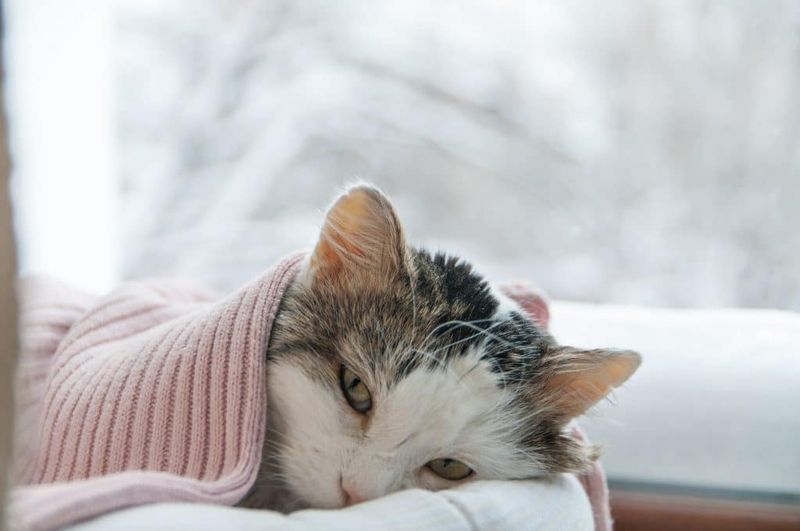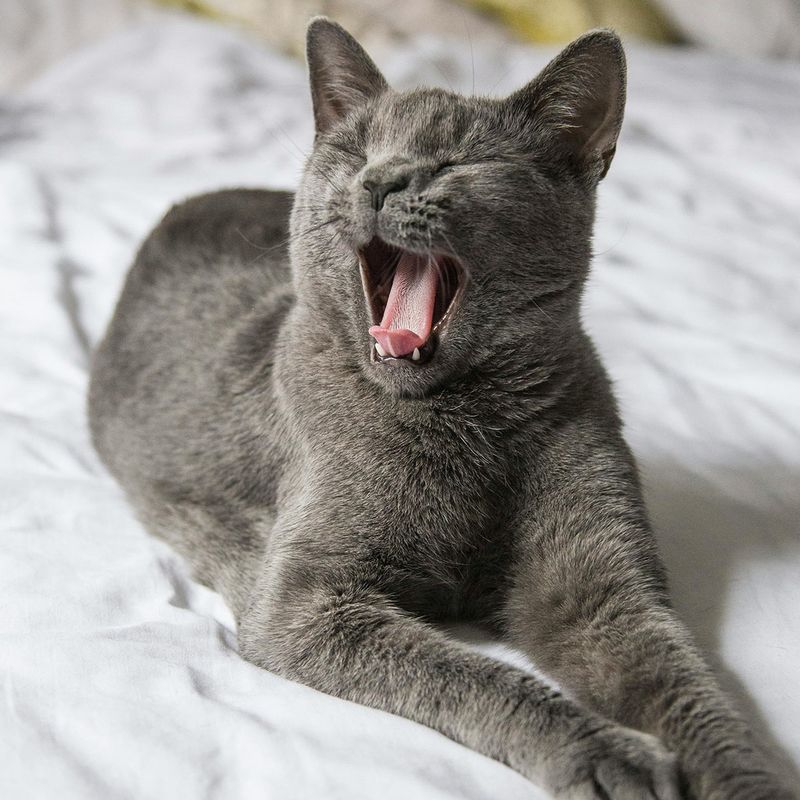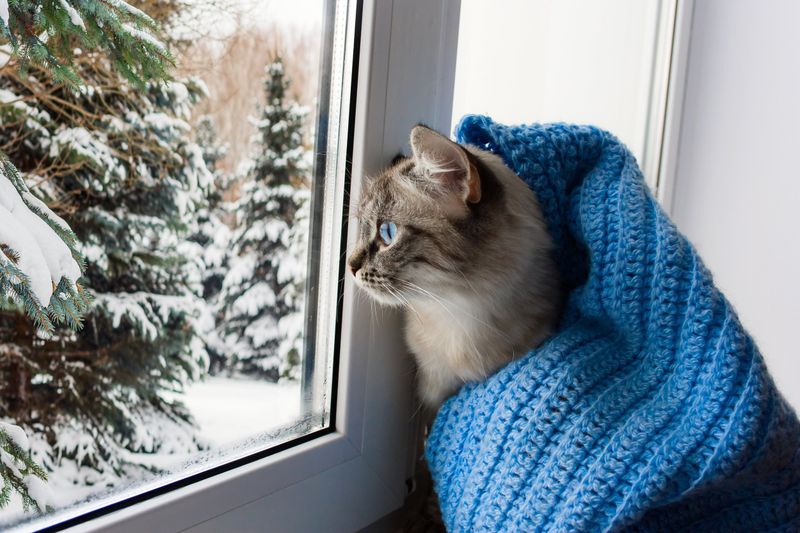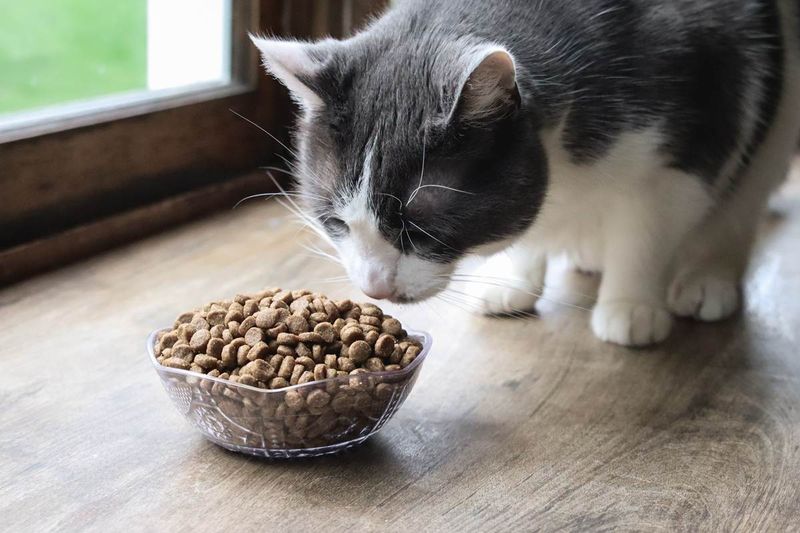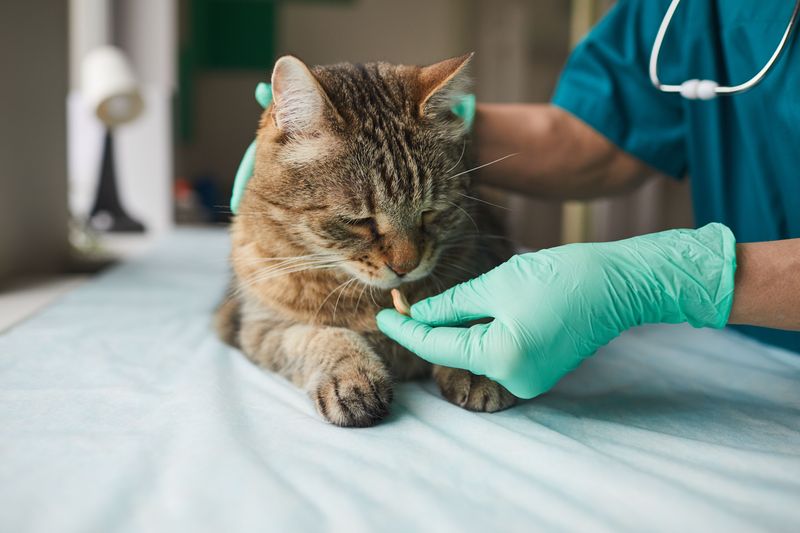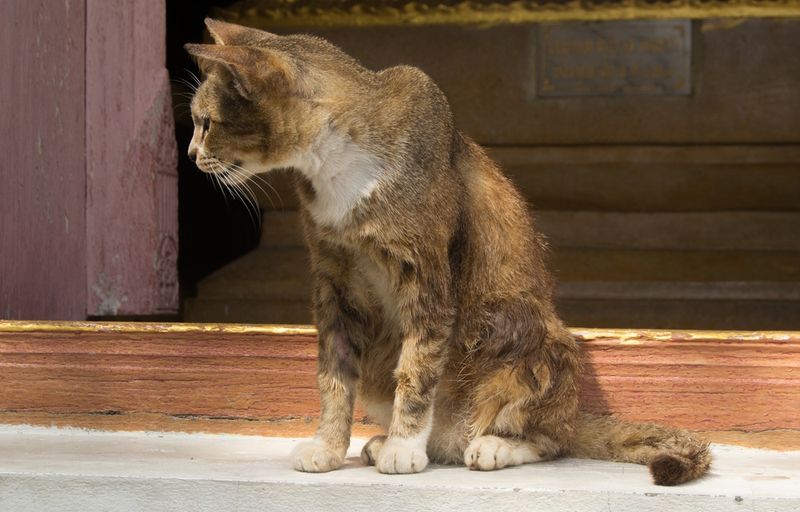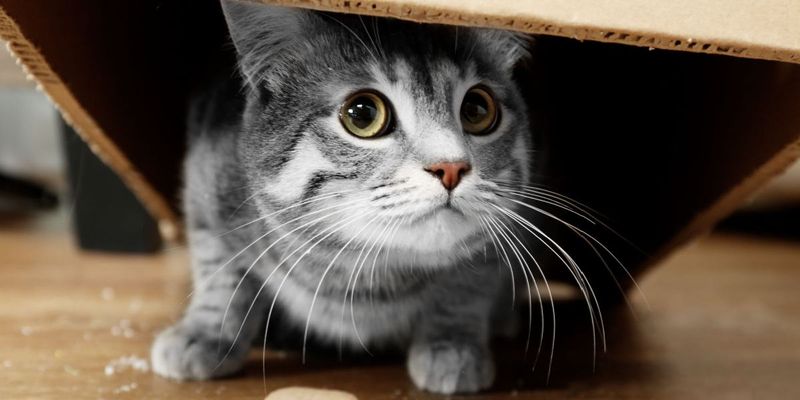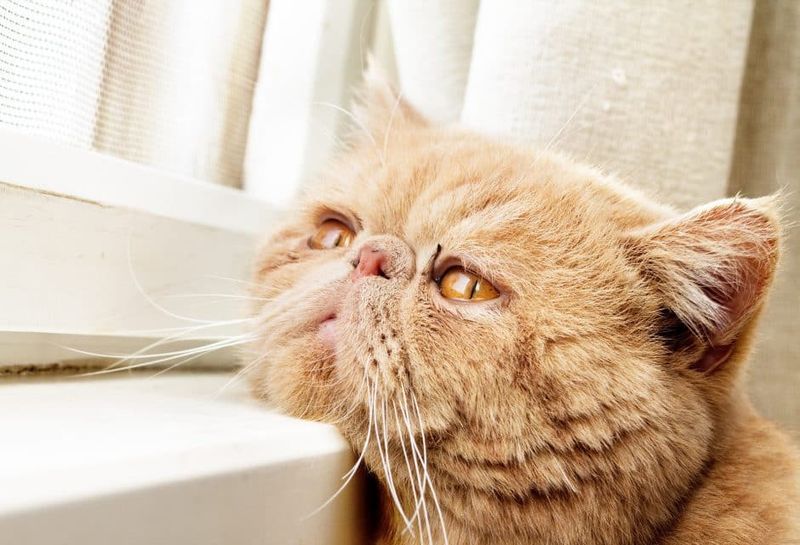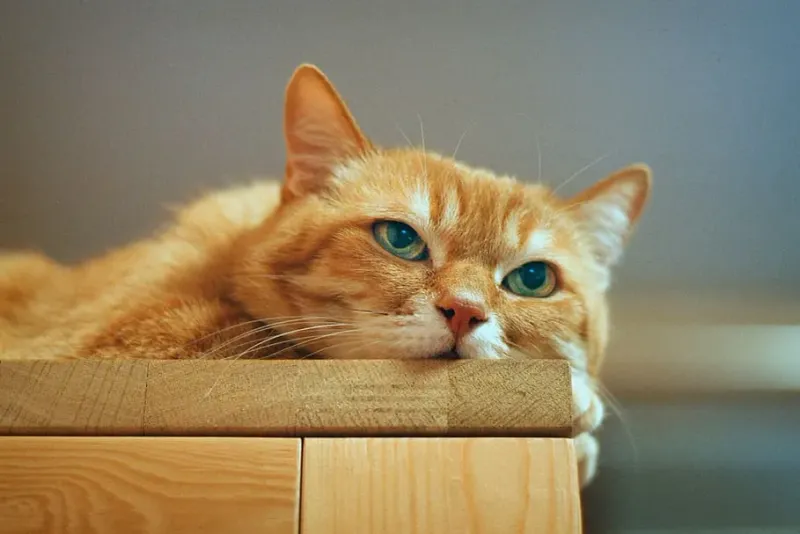📖 Table of Content:
- 1. Environmental Changes Trigger Depression
- 2. Loss of a Companion Affects Cats Deeply
- 3. Physical Illness Often Masquerades as Depression
- 4. Boredom Creates Psychological Distress
- 5. Seasonal Changes Impact Cat Mood
- 6. Diet Directly Affects Mental Health
- 7. Medication Can Help Severe Cases
- 1. Decreased Grooming Habits Signal Depression
- 2. Unusual Hiding or Social Withdrawal
- 3. Changes in Vocalization Patterns
- 4. Appetite and Weight Fluctuations
Cats may seem independent and aloof, but they experience emotional highs and lows just like humans do. Cat depression is a real condition that often goes unnoticed by even the most caring pet parents. Understanding what causes feline depression and recognizing its signs can help you provide better care for your furry friend during difficult times.
1. Environmental Changes Trigger Depression
Moving to a new home, rearranging furniture, or introducing new pets can devastate your cat’s emotional well-being. Cats thrive on routine and familiarity, making them particularly sensitive to changes in their surroundings.
When their environment shifts, cats lose their established scent markers and safe spaces. This disorientation can lead to anxiety and depression as they struggle to adapt.
To help your cat cope, maintain some consistency during transitions. Keep their favorite bed, toys, and scratching posts accessible, and create quiet retreat spaces where they can feel secure when overwhelmed.
2. Loss of a Companion Affects Cats Deeply
Contrary to popular belief, cats form strong bonds with both human and animal companions. When a household member passes away or moves out, your cat may grieve profoundly.
Feline grief manifests as withdrawal, searching behaviors, or calling out for the missing companion. They may sleep in the absent person’s or pet’s favorite spots, seeking comfort from lingering scents.
Support your grieving cat by maintaining consistent routines and offering extra attention. Some cats benefit from having items that smell like their lost companion nearby, while others need new positive experiences to help them move forward.
3. Physical Illness Often Masquerades as Depression
Many cat owners mistake physical pain for emotional distress. Cats instinctively hide illness, making diagnosis challenging. Conditions like arthritis, dental disease, or urinary tract infections can cause behaviors that mimic depression.
A cat that suddenly avoids jumping, shows decreased grooming, or seems withdrawn might be experiencing physical discomfort rather than emotional distress. Pain management can dramatically improve their mood and activity levels.
Regular veterinary check-ups are crucial for distinguishing between physical and psychological causes. Blood tests, physical examinations, and dental assessments help identify hidden medical issues that might be affecting your cat’s mental wellbeing.
4. Boredom Creates Psychological Distress
Domestic cats need mental stimulation to stay emotionally healthy. Without adequate enrichment, indoor cats can develop depression from sheer boredom.
The natural hunter inside your cat craves activity and challenge. When these needs go unmet, cats may become lethargic, overgroom, or develop destructive behaviors. The resulting psychological distress can evolve into chronic depression.
Rotate toys weekly to maintain novelty, create vertical spaces for climbing, and schedule daily interactive play sessions. Food puzzles that make cats work for treats engage their problem-solving abilities and provide satisfaction similar to natural hunting experiences.
5. Seasonal Changes Impact Cat Mood
Shorter daylight hours during winter months affect cats much like they do humans. Feline seasonal affective disorder (SAD) can cause lethargy, appetite changes, and decreased activity when sunlight diminishes.
Cats rely on natural light cycles to regulate their internal clocks and hormone production. Disruptions to these light patterns can alter serotonin levels, affecting mood and energy. Indoor cats with limited window access are particularly vulnerable.
Maximize natural light by keeping curtains open during daylight hours. Consider full-spectrum lighting that mimics sunlight during darker months. Creating sunny resting spots near windows gives cats access to natural light therapy that can significantly improve their seasonal mood fluctuations.
6. Diet Directly Affects Mental Health
Low-quality cat food lacking essential nutrients can contribute to depression in cats. Brain function depends on proper nutrition, particularly omega-3 fatty acids, taurine, and B vitamins.
Food allergies or sensitivities might also trigger inflammatory responses that affect brain chemistry. Some cats experience mood improvements simply by switching to higher-quality foods or identifying and eliminating problematic ingredients.
Consult your veterinarian about diet modifications that support mental health. Supplements like fish oil may benefit some cats, while others might need prescription diets. Remember that sudden food changes can cause stress, so transition gradually when altering your cat’s diet.
7. Medication Can Help Severe Cases
Veterinary antidepressants have become valuable tools for treating persistent feline depression. Medications like fluoxetine (Prozac) and amitriptyline can effectively manage symptoms when behavior modification alone isn’t sufficient.
These medications work by balancing neurotransmitters in your cat’s brain, similar to how they function in humans. The right medication can provide relief while you address underlying causes or help cats through temporary difficult periods.
Always work with a veterinarian experienced in feline behavior when considering medication. Never give human antidepressants to cats, as dosages and formulations differ significantly. Most cats respond best to a combination of medication and environmental enrichment rather than drugs alone.
1. Decreased Grooming Habits Signal Depression
Healthy cats typically spend up to 50% of their waking hours grooming. A sudden reduction in self-care often indicates emotional distress or depression.
A depressed cat’s coat may appear unkempt, greasy, or matted as they lose interest in maintaining their appearance. This neglect contrasts sharply with their normal fastidious nature. Some cats may develop dandruff or skin issues from reduced grooming.
Gentle brushing sessions can help reconnect with your cat while maintaining their coat health. These interactions provide physical contact that stimulates endorphin release. If grooming changes persist beyond two weeks, schedule a veterinary examination to rule out physical causes before assuming depression.
2. Unusual Hiding or Social Withdrawal
Cats naturally seek solitude occasionally, but persistent hiding signals potential depression. A previously social cat who now spends days tucked away under beds or in closets may be experiencing emotional distress.
This withdrawal stems from an instinctive need to protect themselves when feeling vulnerable. Depressed cats often choose dark, quiet spaces where they feel safe from perceived threats or simply disconnect from overwhelming stimuli.
Respect their need for space while gently encouraging interaction. Sit quietly near their hiding spot without forcing contact. Offer high-value treats or favorite toys nearby to create positive associations with coming out. Never drag a cat from their hiding place, as this increases anxiety.
3. Changes in Vocalization Patterns
When cats are depressed, they often change how they vocalize. Some become silent, losing the familiar meows, chirps, or trills they once used.
Others develop excessive vocalization, particularly at night. These mournful, low-pitched howls differ from normal attention-seeking meows. They may represent confusion, distress, or attempts to locate missing companions.
Record unusual vocalizations to play for your veterinarian, as the sound quality provides diagnostic clues. Certain howls might indicate pain rather than emotional distress. Voice changes lasting more than a few days warrant professional evaluation, especially in senior cats, where they might signal cognitive changes.
4. Appetite and Weight Fluctuations
Depression commonly disrupts normal eating patterns in cats. Some lose interest in food entirely, while others develop emotional eating habits, consuming more than usual as a self-soothing mechanism.
Monitoring food intake provides valuable insights into your cat’s emotional state. Sudden weight loss or gain of more than 10% warrants veterinary attention. Keep detailed records of consumption changes to help your vet distinguish between behavioral and medical causes.
Stimulate appetite in depressed cats by warming food slightly to enhance aroma, offering variety in textures, or hand-feeding small amounts. For emotional overeaters, puzzle feeders slow consumption while providing mental stimulation that may help address underlying depression.
